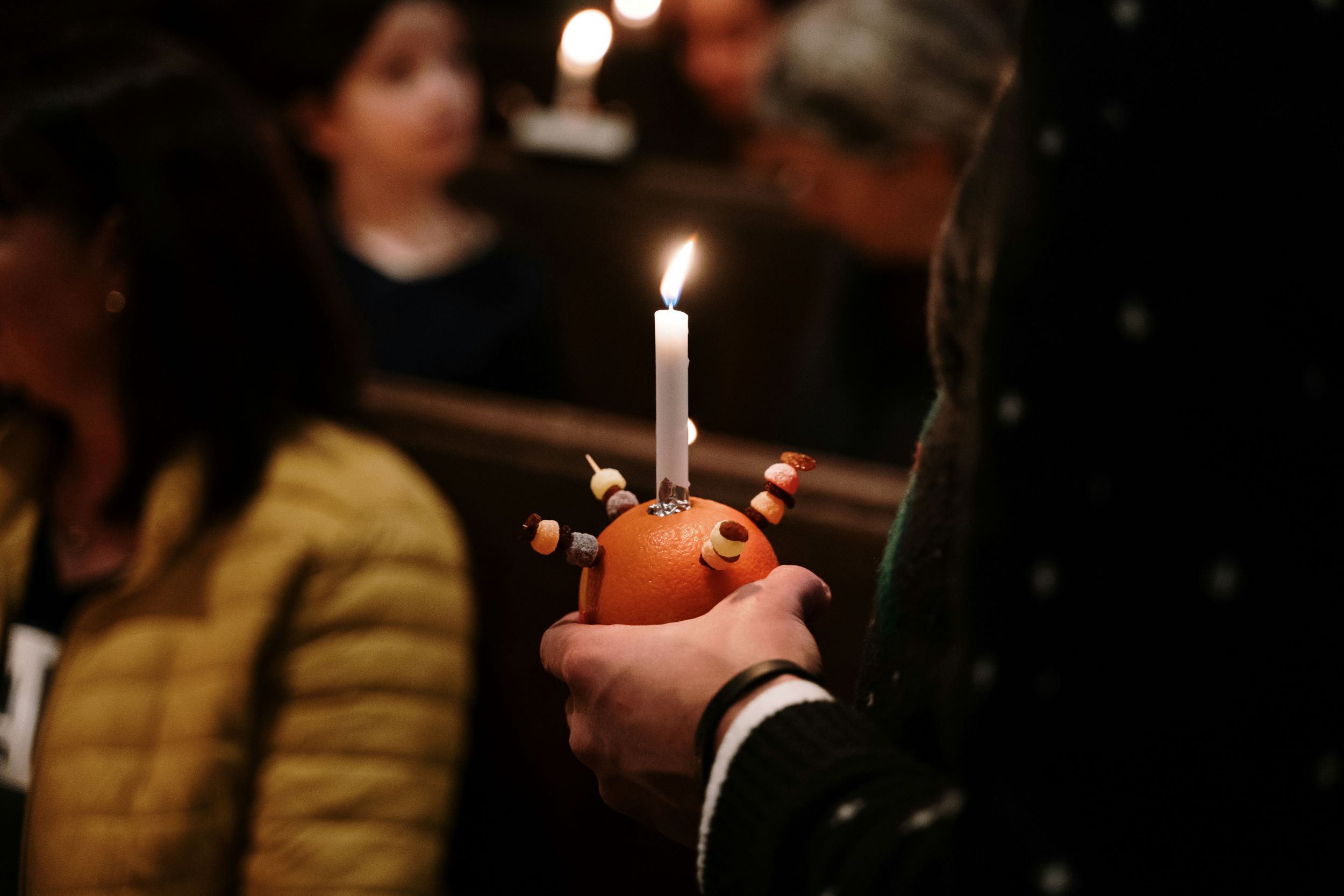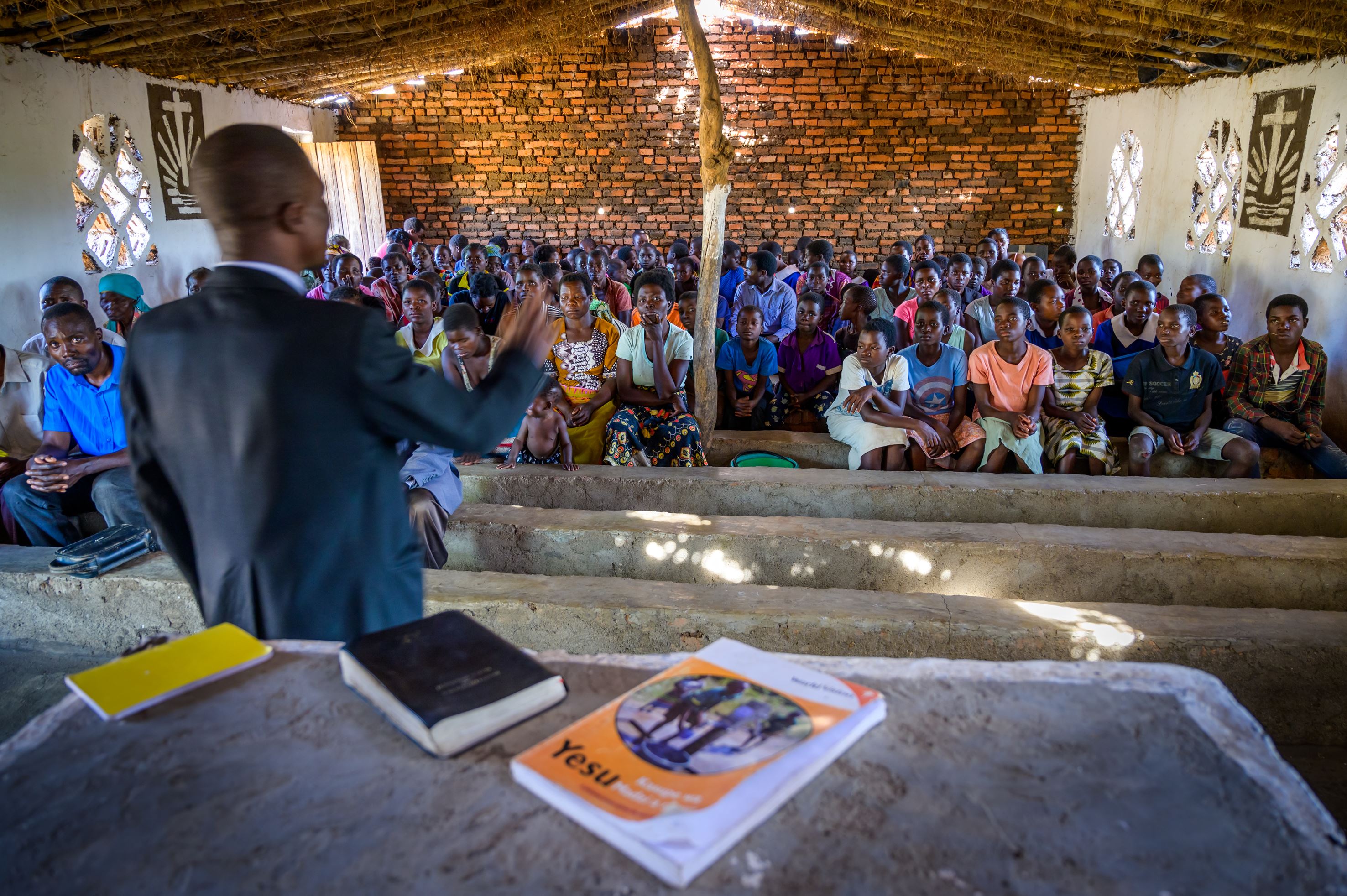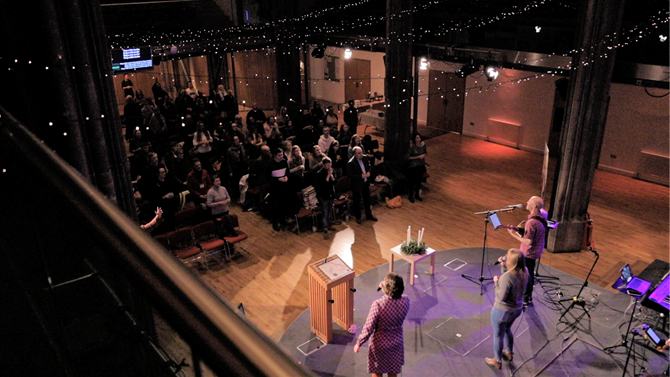
Resources for your Christingle church service
A FREE resource to make your Christingle service even more meaningful
Christingles are a great way to welcome Christmas and light up our lives with hope. December is a cold, dark month, and there’s nothing like a Christingle service – sticky fingers included!
If you’re looking for inspiration for your service this year, look no further. We’ve got a brilliant FREE resource pack to ease the load at this busy time for all.
What's included in the pack?
- Children’s activities
- Bible readings
- Sermon ideas
- Worship music suggestions
- Images and videos
- Prayers

What is Christingle?
Christingle is a Christian celebration that takes place during Advent – the four weeks leading up to Christmas Eve which is a period of preparation for Christmas and the celebration of Jesus’ birth. It gets its name from Christingles, which are lit during the services.
Christingles are oranges tied with a red ribbon, decorated with four cocktail sticks containing sweets or dried fruit and topped with a candle. Each of these represent a different thing:
- The orange represents the world.
- The ribbon represents the love and blood of Christ.
- The sweets/dried fruit represent all of God’s creation.
- The lit candle shows Jesus is the light of the world, bringing hope to people living in darkness.

Hope for the world
A bit like the orange in a Christingle, World Vision is all about hope.
Hope is children like 13-year-old Mukta having enough to eat – even in the midst of a global hunger crisis – and being able to stay in school.
Mukta lives in Bangladesh with his mother and father, Sipra and Manik.
Sipra never wanted her son to grow up the same way she did: living in poverty in an area prone to cyclones and flooding. It meant food was often hard to come by.
After Sipra’s mother died, she had to leave school to help take care of her younger sister. The family regularly had to borrow food from neighbours if their father wasn’t able to earn enough that day to buy what they needed.
Sipra married at 17 and her son was born a year later. Like her parents, she and her husband Manik struggled to make ends meet with his sporadic income from delivering goods – especially when flooding wiped out their crops.
“We would have to eat one time instead of three meals a day,” Sipra says. “I felt really helpless when I could not give food to my child. I felt sad. As a mother, I feel very bad when I cannot give food to my child.”
The worst time was when Mukta became sick. Their neighbours couldn’t lend the money needed to pay for his medical care, so they were forced to cut down many of the jackfruit trees they relied on for fruit and firewood. They sold the timber to buy the medicine Mukta needed.
Disasters and hunger
The coastal area where Mukta’s family lives is full of rivers, canals and dams. Narrow, unpaved roads wind between them.
Many people earn a living through subsistence farming, carting goods, day labouring or fishing. Education levels are low, with only about half of children staying in school beyond primary school. Poverty levels are high, and many families struggle to get enough food to eat.
The area is very prone to disasters like flooding and cyclones, resulting in homes and crops being regularly swept away. This makes it hard to break the cycle of poverty and means children grow up without essentials like enough food and healthcare.
But Child Sponsorship…
Thanks to child sponsors, World Vision is supporting children and communities in Bangladesh to strengthen education, health, livelihoods, water and sanitation, nutrition and child protection.
Sipra is breaking the cycle of poverty for Mukta.
The family was chosen to receive a cow – a valuable income-generating resource. Sipra also received money management training and support to grow more flood resilient crops.
Sipra then began selling the milk from their cow and soon had enough food for their family each day. She was also able to save money, which she used to buy ducks and pigeons – a popular meat source that sells for a premium price.
Within a year, Sipra and Manik could sell a calf and use their savings to buy an auto rickshaw of their own. Whereas before, Manik could earn about 500 Taka (£3.59) a day through his irregular delivery work, he can now earn twice that amount – every day!
Sipra says she is confident they’ll be able to continue feeding their family, even with prices rising.
Orange means hope
When you light your Christingle this year, remember World Vision and the hope in that orange. Take a moment to give thanks for the difference being made to children’s lives every day through our supporters’ generosity.
This is especially needed at a time when millions of people across the world don’t know where their next meal is coming from.



